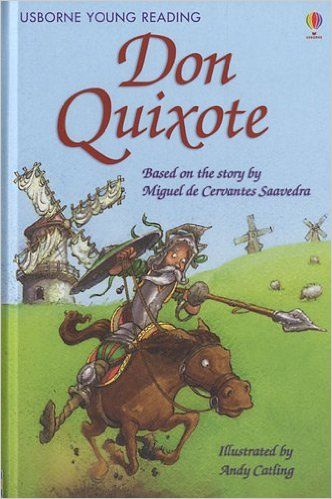

Achilles understands Hector Ulysses can even speak to Polyphemus. Characters in classical literature all spoke the same language. If for many reasons ''Don Quixote'' is the first modern novel, it is pre-eminently because of the different languages spoken in it.

And through it, Grossman can highlight Don Quixote's flight into heroic rhetoric with great comic effect and meaningful emphasis. To make the classic contemporary: this is the achievement. Not, mind you, the ''old'' and the ''new.'' Grossman sees to it that these facile categories do not creep into her work. This is truly masterly: the contemporaneous and the original co-exist. Yet there is not a single moment in which, in forthright English, we are not reading a 17th-century novel. The quality of her translation is evident in the opening line: ''Somewhere in La Mancha, in a place whose name I do not care to remember, a gentleman lived not long ago, one of those who has a lance and ancient shield on a shelf and keeps a skinny nag and a greyhound for racing.'' This ''Don Quixote'' can be read with the same ease as the latest Philip Roth and with much greater facility than any Hawthorne. The family relationship is there.Įdith Grossman delivers her ''Quixote'' in plain but plentiful contemporary English. His ''Quixote'' reads much like ''Humphry Clinker,'' and this seems appropriate and, even, delightful. Up to now, my favorite ''Quixote'' translation has been that of Tobias Smollett, the 18th-century picaresque novelist, who rendered Cervantes in the style proper to Smollett and his own age. Nothing harder for the traduttore, if he or she is not to be seen as the traditore, than to render a classic in contemporary idiom yet retain its sense of time and space. I stop right here, as the curtain goes up -+or the pages open - to celebrate the great new translation of ''Don Quixote'' by Edith Grossman.

He is accompanied by his opposite in figure, speech and temperament: the round, earthy, plainspoken Sancho Panza. But Don Quixote is not alone in his mad quest for chivalry. It was part of the genius of Cervantes to put an old man in the saddle and send him off to relive the heroic tales of the past. Most epic heroes are young, from Achilles to El Cid. In 2005, Don Quixote will be 400 years old.


 0 kommentar(er)
0 kommentar(er)
